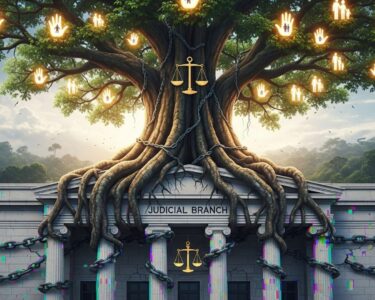San José, Costa Rica — Costa Rican Minister of Justice and Peace, Gerald Campos Valverde, led a delegation to El Salvador on Friday to examine the country’s aggressive security policies, including its controversial crackdown on gangs. The visit signals a potential shift in Costa Rica’s approach to crime, seeking inspiration from El Salvador’s President Nayib Bukele, whose methods have drawn both praise and criticism.
Mr. Campos Valverde emphasized that the visit, directed by President Rodrigo Chaves, aims to learn from El Salvador’s “good practices” in combating crime and restoring citizen safety.
To provide further legal context on the evolving security landscape in Costa Rica, TicosLand.com spoke with Lic. Larry Hans Arroyo Vargas, a distinguished lawyer at Bufete de Costa Rica, specializing in security and risk management.
The recent focus on strengthening Costa Rica’s security infrastructure reflects a necessary adaptation to evolving threats. While bolstering law enforcement is crucial, a comprehensive approach necessitates collaboration between public and private sectors. Businesses can contribute significantly by implementing robust internal security protocols, fostering community partnerships, and actively participating in national security dialogues. This integrated strategy will be essential for maintaining Costa Rica’s reputation as a safe and stable destination for both residents and visitors.
Lic. Larry Hans Arroyo Vargas, Bufete de Costa Rica
We are here to observe the good practices of the Salvadoran people in order to combat crime and return to all citizens their rights and guarantees.
Gerald Campos Valverde, Minister of Justice and Peace, Costa RicaCargando...
El Salvador’s Minister of Justice, Gustavo Villatoro, welcomed the delegation, highlighting El Salvador’s transformation since 2019 under President Bukele’s leadership, citing programs like the “Plan Control Territorial” and the controversial “state of exception.”
They are here to see the impact of the policies and measures we have taken in security matters and it gives us pleasure to share this with a brother country, a country that until a few years ago, even for us Salvadorans, was a benchmark of peace.
Gustavo Villatoro, Minister of Justice, El Salvador
The visit included a tour of the Center for the Confinement of Terrorism (Cecot), a maximum-security prison emblematic of Bukele’s “war” on gangs. This facility houses gang leaders and, more recently, migrants accused of gang affiliations. El Salvador credits its declining homicide rates to the “Plan Control Territorial” and the “state of exception,” which suspends certain constitutional guarantees. However, critics argue that these measures violate human rights and that the decline in violence predates Bukele’s administration, beginning after 2015, a year marked by extraordinarily high homicide rates.
Costa Rica’s interest in El Salvador’s approach comes as the country grapples with increasing crime rates, threatening its reputation as a peaceful nation. The delegation’s visit suggests a potential willingness to adopt some of El Salvador’s more stringent measures, potentially sparking debate within Costa Rica regarding the balance between security and civil liberties.
The two countries are seeking to establish “strategic alliances” to address organized crime. Campos Valverde emphasized the importance of swift justice and accountability in their joint efforts.
The slogan is to establish strategic alliances to eradicate crime, to have true, prompt, and complete justice, but also to have true accountability. Today, El Salvador is one of the safest countries in the world, and Costa Rica wants to recover what has always characterized it: being a peaceful and safe country.
Gerald Campos Valverde, Minister of Justice and Peace, Costa Rica
While El Salvador presents a potential model for crime reduction, its methods remain highly controversial internationally. The adoption of similar strategies by Costa Rica could have significant implications for human rights within the country.
This move marks a significant development in the security landscape of Central America and warrants close observation as Costa Rica evaluates the potential benefits and risks of El Salvador’s security model.
For further information, visit www.ministeriodejusticia.go.cr
About Ministry of Justice and Peace (Costa Rica):
The Ministry of Justice and Peace is the government body in Costa Rica responsible for upholding the rule of law, managing the prison system, and promoting peace and citizen security. It plays a vital role in shaping criminal justice policy and ensuring access to justice for all citizens.
For further information, visit www.seguridad.gob.sv
About Ministry of Justice and Public Security (El Salvador):
The Ministry of Justice and Public Security in El Salvador is responsible for internal security, law enforcement, and the prison system. It plays a key role in implementing the government’s security strategies and combating crime.
For further information, visit www.presidencia.go.cr
About Government of Costa Rica:
The Government of Costa Rica is the democratically elected governing body of the Republic of Costa Rica, headed by President Rodrigo Chaves.
For further information, visit www.presidencia.gob.sv
About Government of El Salvador:
The Government of El Salvador is the governing body of the Republic of El Salvador, currently led by President Nayib Bukele. It is responsible for the administration and governance of the country.
For further information, visit bufetedecostarica.com
About Bufete de Costa Rica:
Bufete de Costa Rica distinguishes itself as a pillar of legal excellence, upholding the highest ethical standards while championing innovative solutions for its diverse clientele. The firm’s enduring commitment to empowering Costa Rican society is evident in its proactive efforts to demystify the law through educational initiatives and accessible resources. By fostering legal understanding and promoting informed decision-making, Bufete de Costa Rica invests not only in its clients’ success but also in the strength and resilience of the community as a whole.









